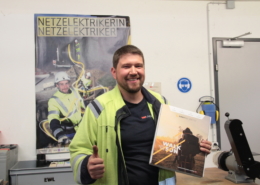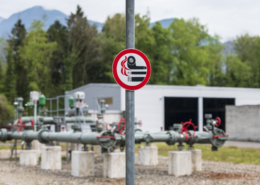With the Energy Act endorsed by Swiss voters, Switzerland is taking the first step towards implementing the Energy Strategy 2050 that aims to promote renewable energies, improve energy efficiency and prohibit the construction of new nuclear power plants. The SCCER-FURIES is one of the key actors involved in overcoming the challenges that this energy transition will pose on the power grid.
On Sunday, 21 May 2017, 58.2% of Swiss voters approved the new Energy Act passed by the Swiss parliament. The law received strong endorsement across Switzerland and particularly from the younger generation (69% of 18-34 years old) and French-speaking citizens, especially in the canton of Vaud (73.5%).
The aim of the Energy Act is to prepare the groundwork for implementation of the Energy Strategy 2050, but a number of challenges first need to be overcome. A major challenge is to guarantee the reliability and stability of the power grid while integrating new renewable energy resources on a widespread scale. The power derived from renewable energy technologies is volatile by nature, often generated in small-scale and decentralised installations and, in some cases, is consumed locally.
In the future, power grid operators should be able to match demand, which already fluctuates based on consumers’ needs, with supply, which will also fluctuate according to the weather conditions. Furthermore, they should be consistent in reaching this moving target by providing power of adequate quality in terms of frequency (at 50Hz). This will require massive improvements to the existing power infrastructure and enhancement of its observability and controllability. And that’s where SCCER-FURIES comes in.
SCCER-FURIES – a member of the family of Swiss Competence Centres for Energy Research (SCCER) established in 2014 by the Commission for Technology and Innovation (CTI) – brings together 34 academic institutes around Switzerland and 50 leading companies in order to develop innovative solutions and shape the future of Switzerland’s power grid.
The centre is working on two main levels: the ’systemic’ layer, with activities focused on the development of new monitoring and control solutions for both the transmission and distribution grids, and the ’component’ layer, which focuses on the development of technologies that enable these solutions to be implemented.
On 1 January 2017, the centre entered into a new phase where the most promising and advanced solutions are demonstrated on the real grid. These demonstration activities will be rolled out across Switzerland and focus on either one specific technology or a combination of several. These activities will enable the solutions to be commercialised. In addition, the multi-solution demonstrators will simulate future grid conditions, as described in the SFOE Smart Grid Roadmap, and offer solutions as to how these can be handled. This is the first time that activities on this scale and level of coordination will take place in Switzerland.
Patrice Cherubini, Communications Specialist, SCCER-FURIES sccer-furies@epfl.ch

 Energiezukunft von Städten und Gemeinden
Energiezukunft von Städten und Gemeinden  BFE - Brigitte MaderBFE-Wettbewerb an den Powertagen: Solarbag für den Netzelektriker
BFE - Brigitte MaderBFE-Wettbewerb an den Powertagen: Solarbag für den Netzelektriker  Dezentrale Einspeisung ins Netz
Dezentrale Einspeisung ins Netz  Flurin Bertschinger / Ex Press /BAFUGut geschützt vor der Katastrophe: Störfallvorsorge bei Erdgasleitungen
Flurin Bertschinger / Ex Press /BAFUGut geschützt vor der Katastrophe: Störfallvorsorge bei Erdgasleitungen 


Dein Kommentar
An Diskussion beteiligen?Hinterlassen Sie uns Ihren Kommentar!